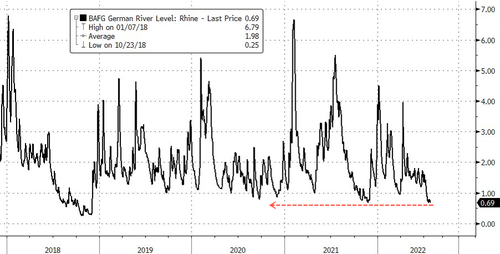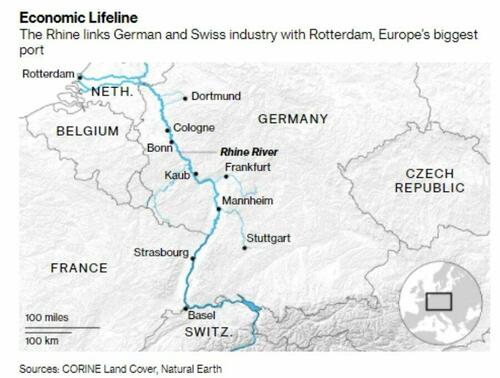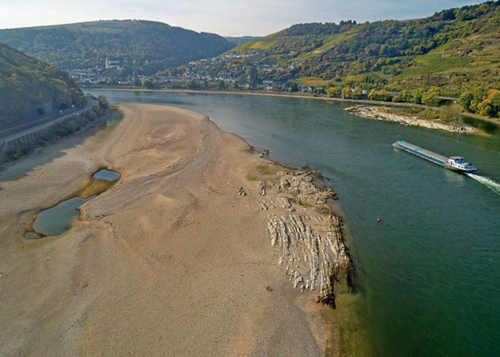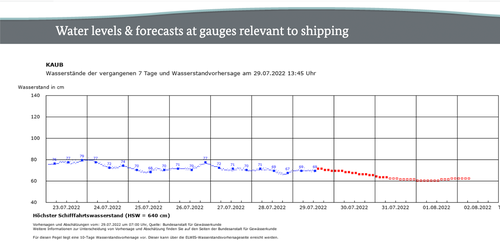Rhine Levels In Germany Forecast To Drop Lower As Barges Reduce Cargo
As Germany bakes in a heatwave, water levels on the River Rhine — an 800-mile (1,288-kilometer) river that runs from Switzerland to the North Sea and is used to transport tens of millions of tons of commodities through inland Europe — have fallen to dangerously low levels.
Water levels at the chokepoint of Kaub near Frankfurt declined to 25.6 inches (65 centimeters) on Thursday, its lowest reading since 2018, when a drought shuttered the waterway for 132 days, resulting in economic and supply chain turmoil.
The low water level means barges must reduce cargo weight to navigate the shallow parts of the river or risk grounding.
Roberto Spranzi from the DTG German Inland Navigation Association told the German newspaper DW that shippers are transporting half the cargo they usually would. Reuters said some shippers sail with only a quarter of cargo depending on the type.
About 80% of all goods that are transported via inland waterways use the Rhine, making it Germany’s most critical transit artery to move goods around. Falling water levels have snarled supply chains, such as the ones of BASF, the world’s biggest chemical company. The company has failed to shift barge transport of goods to entirely trucking.
Two forecasts paint a troubling outlook for the river and imply water levels will continue dropping.
“Unfortunately, our longer-range models suggest drought conditions will probably continue for the next months,” said Andreas Friedrich of the DWD Federal Weather Agency, adding the agency expects a 60-65% chance of dry weather through the autumn season.
From Italy and Spain to Germany and Hungary, Europe is staring into one of its driest summers in living memory.https://t.co/9tyGe2i7Ku pic.twitter.com/dNWxUsdo3q
— Zia Weise (@ZiaWeise) July 18, 2022
Another forecast, this time Kaub’s water levels, could slide to 23.6 inches (60 centimeters) by next week, resulting in even more vessel owners scaling back cargo to reduce draft.
Shippers are focused on the critical 15.7 inches (40 centimeters) mark, a level if breached, prevents barges from sailing past the point and would result in a similar shutdown of the waterway as in 2018.
Germany’s year from hell as energy hyperinflation, lack of natural gas supplies, supply chain snarls, and slowing economic growth risk the economy sliding into recession. Rhine woes could worsen the souring economic outlook, as noted in “Germany’s Energy Crisis About To Get Even Worse As Rhine Water Levels Plummet.”
Tyler Durden
Sat, 07/30/2022 – 08:45
via ZeroHedge News https://ift.tt/YK2NEZl Tyler Durden



